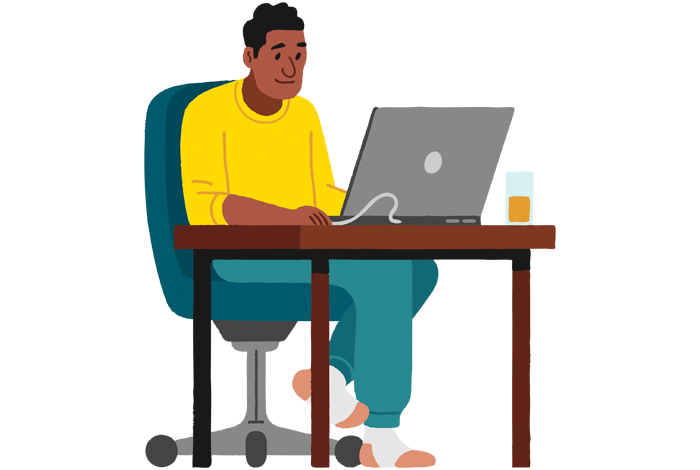Whether it’s through savvy spending or a new promotion at work, you may find yourself in the position to pay extra money off your mortgage. But if you’re wondering where to start, whether your bank will allow it, or if there are penalties involved, it can be a daunting task to look into. Luckily, our guide is here to help.
Why should I pay extra money off my mortgage?
Paying extra money off your mortgage can be a great way to save money on the interest paid over the term. By paying more regularly, over time you could reduce the overall size of your mortgage; reduce the term of your mortgage; or reduce your monthly payments, depending on your mortgage provider.
However, there are situations where paying more may not make the most financial sense for your family.
When should I avoid paying more?
There are a few scenarios when paying more off your mortgage may not be a good financial decision, including:
- If your mortgage provider penalises overpayment, such as with an early repayment charge
- If you are already in debt for loans that have higher interest rates than your mortgage, you should focus on paying these off first
- If paying off your mortgage would leave you without a rainy-day fund for emergencies
- If the interest rate on your loan is low, have you considered investing your spare money ? this way you could gain growth in excess of the interest rate and make your money work harder for you
What are the payment options available?
If you do decide to make additional payments on your mortgage is the right step for you, there are a few different ways to go about it.
The first is with a regular monthly additional payment, where you pay a set additional amount each month on top of your monthly repayments.
The second is with a lump sum, where you pay a larger amount off in one payment. Some people choose to do this once or twice a year depending on the amount they have available to them.
Is there a limit on how much I can pay off?
The amount of money you can pay off your mortgage depends on your lender & your mortgage contract. So it is important to get all of the information from them before you start transferring additional funds.
In general, if you are on a fixed rate mortgage, which most people are for the first few years of their mortgage, lenders usually allow you to pay a maximum of 10% of the total mortgage balance each year.
If you’ve moved past the fixed rate period and are now on a standard variable rate mortgage, lenders usually allow you to pay off as much as you like.
How to make additional payments off your mortgage
Once you’ve decided how you’d like to make the additional payments on your mortgage, the first thing to do is to speak to your lender. You need to make sure that your lenders allow overpayments without any penalties, and check what the maximum amount you can pay is.
Once you’ve confirmed all the details, you can usually set up your payment online. If you’d like to make additional monthly payments, you can set up a standing order, or you can set up a once off transfer for a lump sum. Speak to your lender about the best option for you – they may be able to help you set everything up over the phone or in your local branch, if it’s more comfortable for you.
Did you know that you can get mortgage protection insurance from Aviva Direct for as little as €10 per month? 1 Learn how mortgage protection insurance works.
1. Acceptance criteria, terms and conditions apply. These monthly premiums are based on single life cover of €170,000 for a person aged 31 next birthday and a non-smoker, over a 25 year term, total monthly premium amount €10.03. Source: Aviva Life & Pensions Ireland DAC as at December 2024.
Acceptance criteria, terms and conditions apply. These monthly premiums are based on single life cover of €170,000 for a person aged 31 next birthday and a non-smoker, over a 25 year term, total monthly premium amount €10.03. Source: Aviva Life & Pensions Ireland DAC as at December 2024.
Aviva Direct Ireland Limited is regulated by the Central Bank of Ireland. A private company limited by shares. Registered in Ireland No 374895. Registered Office: Cherrywood Business Park, Dublin, Ireland, D18 W2P5.
Aviva Life & Pensions Ireland Designated Activity Company, a private company limited by shares. Registered in Ireland No. 165970. Registered office at Building 12, Cherrywood Business Park, Loughlinstown, Co. Dublin, D18 W2P5. Aviva Life & Pensions Ireland Designated Activity Company, trading as Aviva Life & Pensions Ireland and Friends First, is regulated by the Central Bank of Ireland. Tel (01) 898 7950.
Life and Protection Cover is underwritten by Aviva Life & Pensions Ireland DAC.



